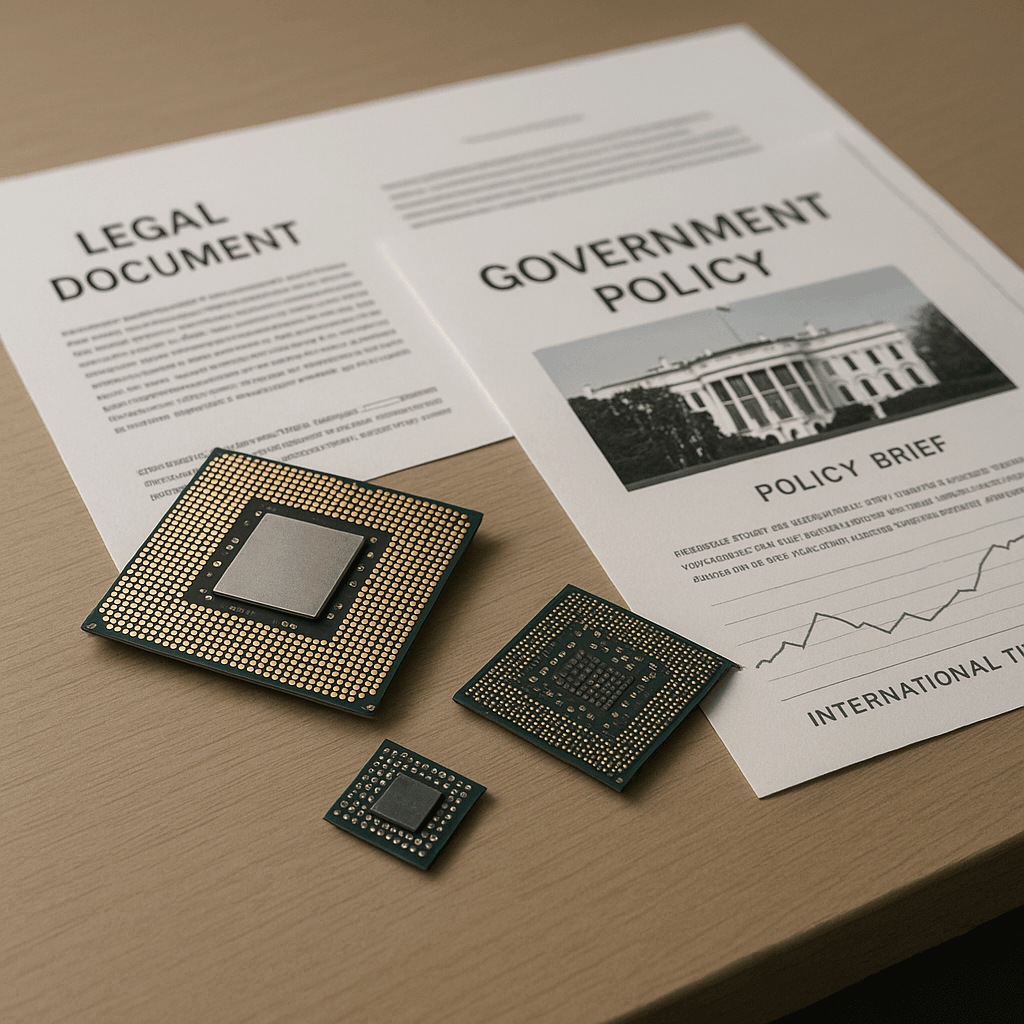TL;DR:
• White House confirms legal review ongoing for Trump's 15% chip revenue deals
• Commerce Department working out mechanics as legal experts warn of complications
• Deal could expand to other companies, affecting billions in AI chip exports
• China responding by urging firms to avoid Nvidia H20 chips
The Trump administration is scrambling to work out the legal mechanics of President Trump's unprecedented 15% revenue-sharing deal with chip giants Nvidia and AMD, with the Department of Commerce still reviewing whether the arrangement violates existing export licensing laws. The admission from White House spokesperson Karoline Leavitt reveals growing uncertainty around a deal that could reshape how the U.S. monetizes strategic technology exports.
The Trump administration just admitted it's flying blind on one of its most controversial trade moves. White House spokesperson Karoline Leavitt revealed Tuesday that the Department of Commerce is still "ironing out" the legal framework for President Trump's surprise 15% revenue-sharing arrangement with Nvidia and AMD on China chip sales.
"The legality of it, the mechanics of it, is still being ironed out by the Department of Commerce," Leavitt told reporters, deflecting questions about implementation details to an agency that hasn't responded to requests for comment.
The admission comes as trade lawyers sound alarms about potential violations of existing export licensing laws. Legal experts warned this week that Trump's demand for a government revenue cut may conflict with regulations governing how agencies can charge fees for export licenses.
Trump announced the deals Monday, confirming he'd negotiated export license approvals for Nvidia's China-specific H20 AI chip in exchange for 15% of revenue. "I said, 'If I'm going to do that, I want you to pay us as a country something, because I'm giving you a release,'" Trump explained, treating export licenses like a commercial transaction rather than a national security tool.







